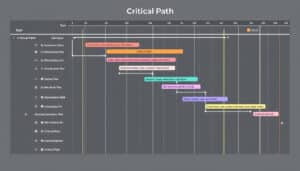The Lean Startup stands out for its ability to turn ideas into viable products while minimizing the risk of failure. This innovative approach is based on fundamental principles that allow entrepreneurs to quickly test their concepts with consumers. By focusing on iteration and active listening to market needs, the Lean Startup provides an agile framework for developing suitable and relevant solutions. Thanks to this method, it becomes possible to validate initial hypotheses before proceeding to a large-scale launch, thereby optimizing the process of starting a business and fostering continuous innovation.
🔥 Nous recommandons Ideamap
Ideamap est l’outil idéal pour un brainstorming ou un projet collaboratif. Grâce son interface facile et à ses fonctions IA, Ideamap booste votre créativité tout en favorisant une meilleure organisation de vos idées pour atteindre vos objectifs.
The concept of lean startup represents an innovative method primarily aimed at entrepreneurs wishing to launch their products or services. Its main objective is to minimize the risks associated with new creations while maximizing the chances of success. This approach is based on the idea of quickly creating a prototype that customers can test, thus validating initial assumptions.
The definition of lean startup is based on a fusion of agility and operational rigor. Indeed, it combines the responsiveness of startups with proven project management methods, often inspired by the Lean movement, which advocates for waste reduction and process optimization. This model allows entrepreneurs to navigate an uncertain environment while remaining attuned to market needs.
One of the fundamental principles of the lean startup method is the Minimum Viable Product (MVP). This is a simplified version of a product or service, equipped with enough features to meet initial users’ needs. This allows for quick feedback collection and product adaptation accordingly. The idea is to validate customer interest before investing in significant development.
Another key principle is the notion of iteration. Through constant testing and feedback, entrepreneurs gradually improve their product. This iterative approach favors continuous evolution based on real data and customer feedback, rather than assumptions.
The validation of ideas is also central to the lean startup process. Before embarking on the complete development of a product, it is crucial to test the acceptance of its concept with a sample of customers. This involves engaging in direct discussions with them, observing their behaviors, and adapting proposals based on their actual needs.
It is also essential to highlight that the lean startup emphasizes experimentation and learns from failures. Failure is not viewed as an end in itself but as a learning opportunity. With this approach, entrepreneurs can quickly and effectively readjust their strategies.
In terms of implementation, entrepreneurs using the lean startup often rely on agile tools that enhance collaboration and communication. For example, methods such as design thinking help align product development with user expectations while fostering an atmosphere of innovation.
Furthermore, adopting the lean startup requires a certain company culture focused on openness and curiosity. Entrepreneurs must cultivate a mindset of testing and iteration, where each success or failure is a step toward a deeper understanding of the market and consumer behavior.
Finally, the lean startup method is a real asset for companies in the startup phase. It not only saves time and money but also closely aligns products with actual customer needs, thus maximizing the chances of making their projects sustainable successes. These key principles form the foundations of a pragmatic approach to innovate effectively in the digital age.















